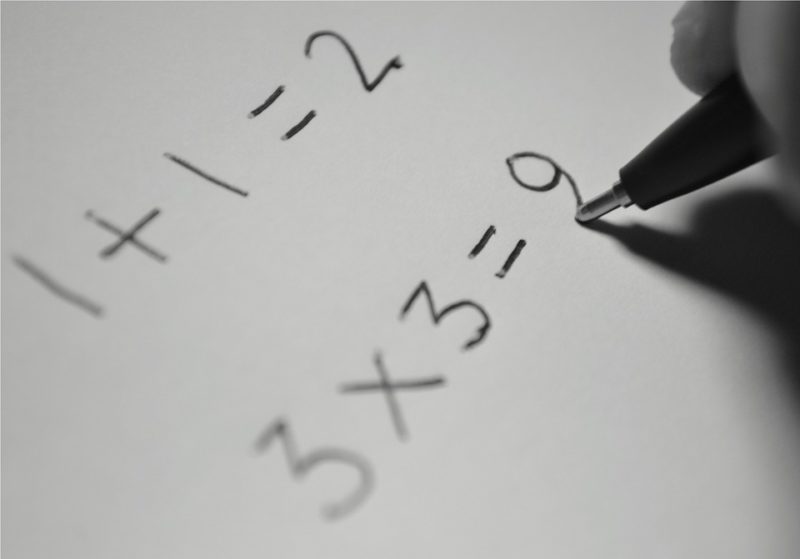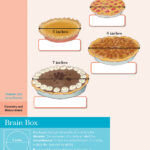
Stefan Banach, one the most influential mathematicians of the 20th century, once said, “Mathematics is the most beautiful and most powerful creation of the human spirit.” He clearly didn’t have a frustrated middle-school student at his kitchen table erasing an incorrect answer so earnestly that he ripped the paper straight through. However, research shows that if we (educators and parents) help kids approach the subject properly, math can, in fact, bring happiness and maybe—just maybe—be a thing of beauty. And as we all know, there is nothing more beautiful than the smile of a child who has just figured something out!
If you or your child find yourself getting anxious just thinking about math, you’re not alone. Panic, insecurity, “freezing up,” and mental disorganization are all common reactions that math-phobic people have when they are asked to solve a problem. In fact, math anxiety is such a common phenomenon that our culture has built a number of myths supporting people’s avoidance of math, such as:
- You have to be born with a “math brain.” or “Some people are math people and some are just not.” If your child returned home with a bad social studies grade, would you say, “You just weren’t born with a social studies brain.” Of course not!
- You can’t be creative and good at math. All it takes is a quick history lesson to know that some of the greatest thinkers of all time were both artists and mathematicians, such as Leonardo DaVinci, M.C. Escher, and Lewis Carroll to name a few.
- Girls aren’t as good as boys at math. Don’t even get me started on this one.

Indeed, our negative culture around math and the symptoms of math anxiety lead to a vicious cycle where a person’s fear of math blocks them from learning and studying properly. What is the logic outcome of poor studying? Poor performance (as well as some likely scolding) and even more negative connotations with math, which eventually leads to avoiding the subject altogether.
But the good news is that the opposite is true too—positive experiences can lead to more excitement, more learning, more curiosity, and more advancement. And even better news: anyone can dramatically change their perception of math with some very simple steps, and therefore improve their reality when it comes to homework, tests, and overall academic performance. Here are 5 simple ways to combat math anxiety:
- Visualize yourself succeeding. Top athletes, performers, and CEOs all use this technique to prepare for their “go time.” Imagine yourself being relaxed while doing math and confidently answering questions. Starting from this positive place can go a long way in setting the tone for any study session.
- Do the easiest problems first. I always tell parents that if their child is struggling in a subject, go back a few steps to lessons they find much easier. Build up your child’s confidence so they feel poised to take on a challenge. Similarly, you can build confidence within a topic by starting with the easiest problems first and moving on from there.
- Combat negative thinking. And, yes, I’m also talking to YOU, parents! Replace those “I’ve never been good at math” stock phrases with “I can do this,” and “We can figure this out.” Your children will take cues from you. Also, try reminding your child (and yourself) of situations where they struggled and persevered. Combatting those negative thoughts with more positive messages means kids will be less likely to quit before they’ve really tried.
- Find support. If you’ve ever had an incredible coach, mentor, teacher or even just a great friend, you know that having the right kind of support during tough times can make all the difference. The same holds true for math. Whether it’s turning to a workbook like SUMMER BRAIN QUEST, starting a study-circle, watching tutorials on YouTube, or asking your teacher for extra help, getting the right support can directly improve your math skills and ease some of the frustrations and self-doubt that can arise when you struggle with a problem.
- Take your time. Many students believe that in order to be good at math, they have to be fast. You may want to eventually gain speed when taking a test or to show mastery of a skill, but when you are learning something new, speed isn’t your friend. In fact, giving yourself ample studying and preparation time, taking the time to think about the “why’s” of a math concept, as well as leaving time for practice and review can vastly improve your child’s chances of comprehension and success. Reassure your child that the speed can and will come later. And, in case they need convincing, let them know that Albert Einstein—renowned for the world’s most famous equation, E = mc2, once said, “It’s not that I’m so smart, it’s just that I stay with problems longer.”





No Comments